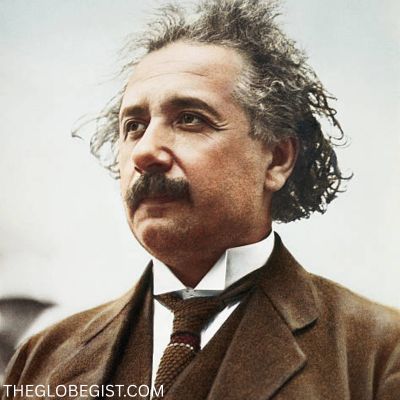Albert Einstein’s IQ: Unveiling the Genius Behind the Numbers

Albert Einstein, one of the most iconic figures in science, revolutionized our understanding of the universe with his groundbreaking theories. His name is synonymous with genius, and his intellectual capabilities have fascinated scholars, students, and enthusiasts around the world. Among the many questions about Einstein’s life, one of the most frequently asked is about his IQ.
Despite his fame, Einstein never underwent a formal IQ test, which makes determining a precise score impossible. However, researchers, historians, and psychologists have attempted to estimate his IQ based on his contributions to science, problem-solving abilities, and brain studies. This article explores these estimates, the science behind his intellect, and what they reveal about the nature of intelligence itself.
Understanding the Myth of Einstein’s IQ
A widely cited estimate suggests that Einstein had an IQ of around 160. This score places him firmly in the “genius” category, which is typically reserved for individuals with extraordinary cognitive abilities. However, it’s important to note that this figure is speculative, as Einstein never took a standardized IQ test.
The estimate of 160 is derived from examining his remarkable accomplishments. Einstein formulated the theory of relativity, explained the photoelectric effect, and developed equations that form the foundation of modern physics. These achievements suggest a level of analytical and problem-solving ability consistent with extremely high intelligence.
Other sources place his IQ even higher, in the range of 160–190, which underscores the difficulty in quantifying genius. The numbers provide a general sense of Einstein’s intellectual capacity, but they should not be taken as definitive.
Insights from Einstein’s Brain
In the absence of formal IQ testing, scientists have turned to anatomical studies of Einstein’s brain to better understand his cognitive abilities. Research conducted by neuroscientist Sandra Witelson examined preserved specimens of Einstein’s brain and revealed fascinating insights.
Einstein’s brain had a larger-than-average lower parietal region, an area associated with mathematical reasoning, spatial cognition, and abstract thinking. This unique structure may have contributed to his exceptional ability to visualize complex problems and develop innovative solutions.
Additionally, his brain showed unusual features, such as the absence of a typical brain fissure in certain regions, which may have allowed for enhanced connectivity between different areas. Such anatomical differences suggest that Einstein’s cognitive processing was not only highly developed but also uniquely configured for creative and analytical thinking.
The Nature of Intelligence Beyond IQ
While IQ scores can provide a rough measure of cognitive ability, they do not capture the full spectrum of human intelligence. Modern theories, such as Howard Gardner’s multiple intelligences, suggest that intelligence is multi-dimensional. Gardner identified various forms, including linguistic, logical-mathematical, spatial, musical, bodily-kinesthetic, interpersonal, intrapersonal, and naturalistic intelligences.
Einstein’s brilliance was not limited to logical-mathematical thinking. His insights often stemmed from intuition and imagination—qualities that are rarely measured in standardized tests. For example, his thought experiments, like imagining riding alongside a beam of light, demonstrate the power of creative and abstract thinking that transcends conventional IQ measures.
Einstein himself emphasized the importance of imagination over rote knowledge, famously stating that imagination is more important than knowledge. This perspective highlights that true genius involves a combination of analytical reasoning, creativity, curiosity, and persistence.
Limitations of IQ as a Measure of Genius
IQ tests are designed to measure certain aspects of intelligence, such as problem-solving, memory, and pattern recognition. However, they have limitations. They do not account for creativity, emotional intelligence, social skills, practical problem-solving, or the ability to innovate.
Einstein’s achievements illustrate this limitation. His success was not merely the result of high cognitive ability but also his imaginative thinking, relentless curiosity, and determination to question established norms. His ability to connect seemingly unrelated ideas, think abstractly, and visualize complex phenomena played a crucial role in his groundbreaking discoveries.
This understanding reminds us that intelligence is a complex and multi-faceted trait, and attempting to reduce it to a single number can oversimplify the richness of human cognitive potential.
Why Einstein’s IQ Matters
The fascination with Einstein’s IQ reflects a broader human curiosity about the nature of genius. People are naturally drawn to understand what makes certain individuals exceptionally talented or innovative. While the exact number may be unknown, examining Einstein’s intellectual life provides insights into the qualities that foster exceptional achievement.
Einstein’s life demonstrates that genius is not purely about raw intellect. Dedication, perseverance, curiosity, and creative problem-solving all contribute to remarkable accomplishments. His legacy encourages us to value a holistic view of intelligence that combines analytical skills with creativity, intuition, and emotional insight.
Conclusion
Albert Einstein’s precise IQ remains a mystery, and perhaps it is a question that can never be definitively answered. Estimates suggest that he possessed extraordinary intellectual abilities, likely placing him in the range of 160–190. However, what truly defines Einstein’s genius extends beyond any numerical score.
Einstein’s contributions to science and humanity were the result of a remarkable combination of creativity, imagination, and rigorous thinking. His life teaches us that intelligence is far more than a single test result; it is a rich tapestry of abilities, experiences, and insights.
For readers interested in exploring more about intelligence, science, and human potential, be sure to visit The Globe Gist, for engaging content on these topics.
1. What was Albert Einstein’s IQ?
Albert Einstein never took a formal IQ test, but estimates based on his achievements suggest his IQ ranged between 160 and 190.
2. How is Einstein’s IQ estimated?
Researchers estimate Einstein’s IQ by analyzing his contributions to science, problem-solving abilities, and unique brain anatomy rather than through standardized testing.
3. Did Einstein’s IQ make him a genius?
While a high IQ indicates strong cognitive ability, Einstein’s genius also stemmed from creativity, imagination, and intuition, which are not measured by IQ tests.
4. Was Einstein’s brain different from average people’s brains?
Yes, studies of his brain revealed unique features, including a larger lower parietal region associated with mathematical and spatial reasoning and enhanced connectivity between brain areas.
5. Can IQ alone predict success like Einstein’s?
No. IQ measures certain cognitive skills, but factors like creativity, persistence, curiosity, and problem-solving ability play a significant role in achieving remarkable accomplishments.
6. Why is Einstein’s IQ still discussed today?
Einstein’s IQ symbolizes the human fascination with genius and intellectual achievement, highlighting how exceptional minds combine multiple forms of intelligence.
Thanks for read our article if you want more like this kind of article visit our site The Globe Gist, and comment us. We provide authentic & comprehensivf information to our readers.



